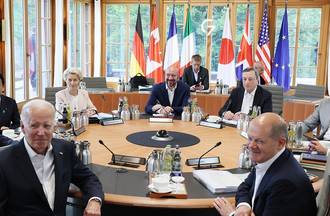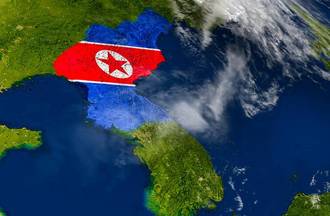Asia and the Pacific
Covering the region from Afghanistan to Australia we consider the economic, political, and military developments and their impact on global geopolitics and security, with the rising dominance of China and the nuclear threat posed by North Korea.
Countries and groups covered in this region
Our experts
Jack Crawford
Research Fellow
Proliferation and Nuclear Policy
Tom Keatinge
Director, CFS
Centre for Finance and Security
Dr Neil Melvin
Director, International Security
International Security
Wojciech Pawlus
Head of Countering Proliferation Financing Programme
Centre for Finance and Security
Dr Philip Shetler-Jones
Senior Research Fellow, Indo-Pacific Security
International Security
Emily Winterbotham
Director of Terrorism and Conflict Studies
Terrorism and Conflict
Fellows
Dr Aaron Arnold
Senior Associate Fellow; Former member of the UN Panel of Experts for DPRK sanctions
Centre for Finance and Security
Chris Batt
RUSI Senior Associate Fellow
Andrea Berger
Associate Fellow
Dr Stephan Blancke
RUSI Associate Fellow
The Rt. Hon. Alistair Burt
Distinguished Fellow
Andrew Cainey
Senior Associate Fellow; Founding Director of the UK National Committee on China
Simon Chelton
Associate Fellow; Independent Consultant
Emil Dall
Associate Fellow; Sanctions Lead at FINTRAIL
Catherine Dill
Associate Fellow
Dr Bates Gill
Senior Associate Fellow; Professor of Asia-Pacific Security Studies at Macquarie University, Australia
Dr Jürgen Haacke
Associate Fellow; Associate Professor in International Relations at LSE
Benedict Hamlyn
Associate Fellow
Dr Sari Arho Havrén
Associate Fellow - Specialist in China’s foreign relations
Dr Ashley Hess
Associate Fellow
Isabel Hilton OBE
Senior Associate Fellow
Professor Christopher Hughes
Senior Associate Fellow
Professor William Hurst
RUSI Senior Associate Fellow
Kayla Izenman
Associate Fellow; Former CFCS Research Fellow, RUSI
Paulina Izewicz
Associate Fellow
Dr Keizo Kitagawa
RUSI Associate Fellow
Dr Walter Ladwig
Associate Fellow; Senior Lecturer in International Relations, War Studies at KCL
Professor David Lewis
Senior Associate Fellow; Professor of Global Politics, University of Exeter
Erin Lubowicz
Associate Fellow
Clovis Meath Baker CMG OBE
Associate Fellow
Dr Orzala Nemat
Senior Associate Fellow
Catherine Nettleton CMG OBE
RUSI Senior Associate Fellow
Commodore (Rtd) Peter Olive OBE
RUSI Associate Fellow
Allison Owen
Associate Fellow - Expert in cryptocurrency and counter-proliferation finance
Raffaello Pantucci
Senior Associate Fellow
Charles Parton OBE
Senior Associate Fellow
Professor Alessio Patalano
Senior Associate Fellow; Professor of War and Strategy in East Asia, War Studies, KCL
Dr Samuel Ramani
Associate Fellow; Tutor of Politics and International Relations, University of Oxford
Jonathan Rugman
Senior Associate Fellow
Henry Sanderson
Associate Fellow
Juan Pablo Toro
Senior Associate Fellow; Executive Director of AthenaLab, Chile
Cristina Varriale
Associate Fellow
Tim Willasey-Wilsey CMG
Senior Associate Fellow
Amy Woolf
Senior Associate Fellow
























































